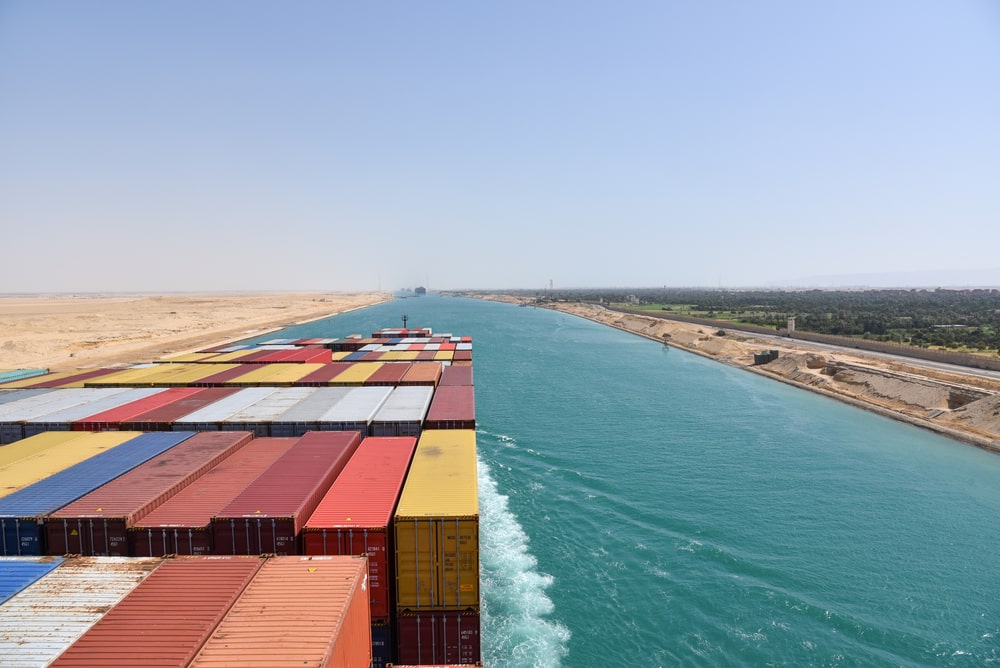
This article was updated on Thursday 4th January
Global container firms, accounting for an estimated 95% of the capacity that usually crosses the Suez, including MSC and Hapag-Lloyd, have suspended services in the Red Sea in recent weeks.
This decision was taken in the aftermath of attacks by Houthi militants on vessels traveling through the Bab al-Mandab, a narrow strait between the African and Arabian peninsula.
Maersk became the latest shipping firm to join this list, pausing all Red Sea traffic for forty-eight hours, following two attacks on the Maersk Hangzhou, the Singapore-flagged container vessel. This reversed Maersk’s previous decision on the 24th December to reinstate Red Sea traffic.
The first attack took place on Saturday 30th December, with the vessel being hit by a missile about 55 nautical miles southwest of Al Hadeidah, Yemen. The vessel was carrying 14,000 containers en route from Singapore.
This was followed up by another attack on Sunday 31st December, with Houthi attackers seeking this time to board the vessel.
Helicopters from USS Eisenhower and USS Gravely joined the ship’s security team in repelling attackers, after receiving a distress signal from Hangzhou, U.S Central Command (CENTCOM) said.
Three ships were sunk, and ten militants were killed according to US, Maersk and Houthi accounts.
Yemen’s Houthi militants, who control most of northern Yemen, have been fighting a nine-year civil war to gain control of the country. They have been targeting vessels in the Red Sea since November in a show of solidarity for Hamas, following Israeli’s invasion of Gaza in the aftermath of the 7th October attacks.
The attacks have prompted major shipping companies to take the longer and costlier route around Africa’s Cape of Good Hope rather than through the Suez Canal. This will extend journeys from around 31 to 40 days between Asia and Northern Europe, says Clarksons. The extended delays in schedules will mean that many ships will arrive at ports behind schedule leading to potential disruptions at ports in allocating berths to vessels.
10% of seaborne trade passes through the Bab al-Mandab strait. The strait is situated in the Red Sea, an entry point for ships using the Suez Canal, which in turn handles 12% of global trade. The Suez Canal has always long been a key channel for moving goods between Asia and Europe.
Despite claiming to be targeting only Israel-bound vessels, the attacks were becoming increasingly sporadic, culminating in a missile strike on an Indian-crewed tanker carrying vegetable oil from Malaysia to Italy in December.
In response to these attacks, the United States launched Operation Prosperity Guardian on 19th December, with 20 countries agreeing to participate in efforts to safeguard ships passing through the Red Sea.
However, it seems that Houthi attacks have not disrupted Israeli shipments. While revenue may be down 80% at the port of Eilat; the port only handles 5% of Israel’s seaborne trade, the Economist notes. The bulk of Israeli maritime trade is through the ports of Ashod and Haifa, which are in the Mediterranean.
The more immediate consequences of the Houthi attacks are on Yemen itself. Yemen imports 80% of its food, with the bulk of those imports arriving at Hodediah, its main Red Sea port. But with many ships avoiding the Red Sea, this could have drastic impacts on food imports into the nation, as ships may choose to avoid the port altogether.
Alternatively, if they do choose to arrive at the port, then they will pass on the higher insurance premiums to Yemen in the form of higher prices.
The United States and UK have called on Iran to end support for attacks by Houthi rebels. Iran rejected the accusations and dispatched a navy vessel, the Alborz Destroyer to the Red Sea. The warship entered Red Sea on Monday.
Both the UK and US are considering issuing a formal warning to the Houthi that they will strike military installations in Yemen along the Red Sea coast if the rebel fighters do not stop their attacks on Israeli-bound commercial shipping.